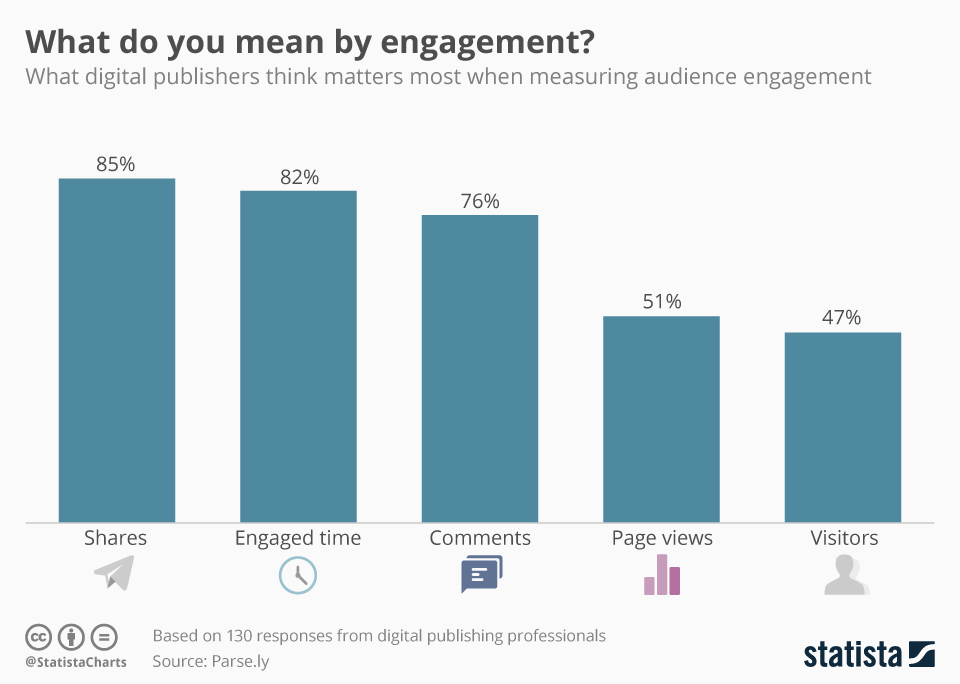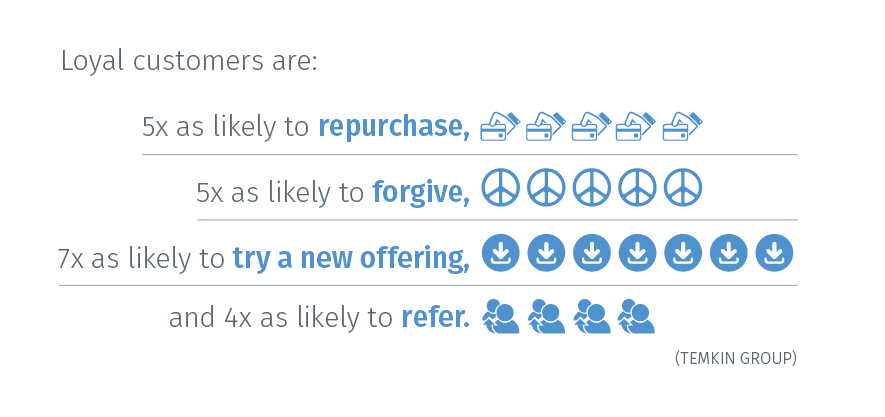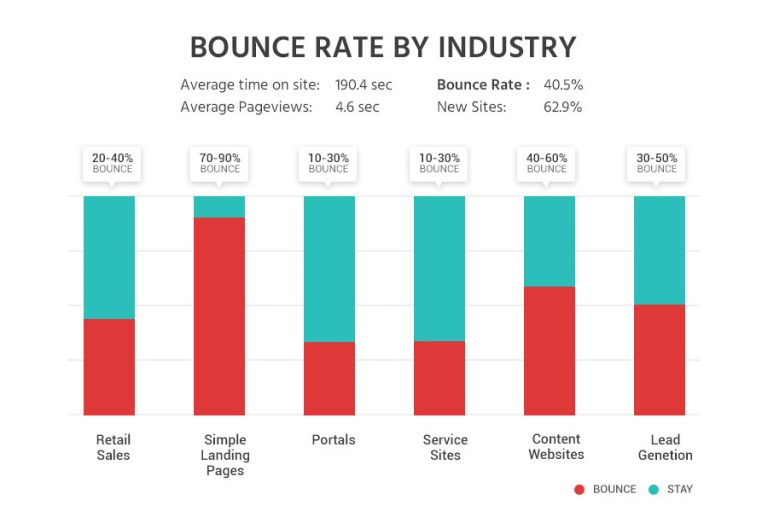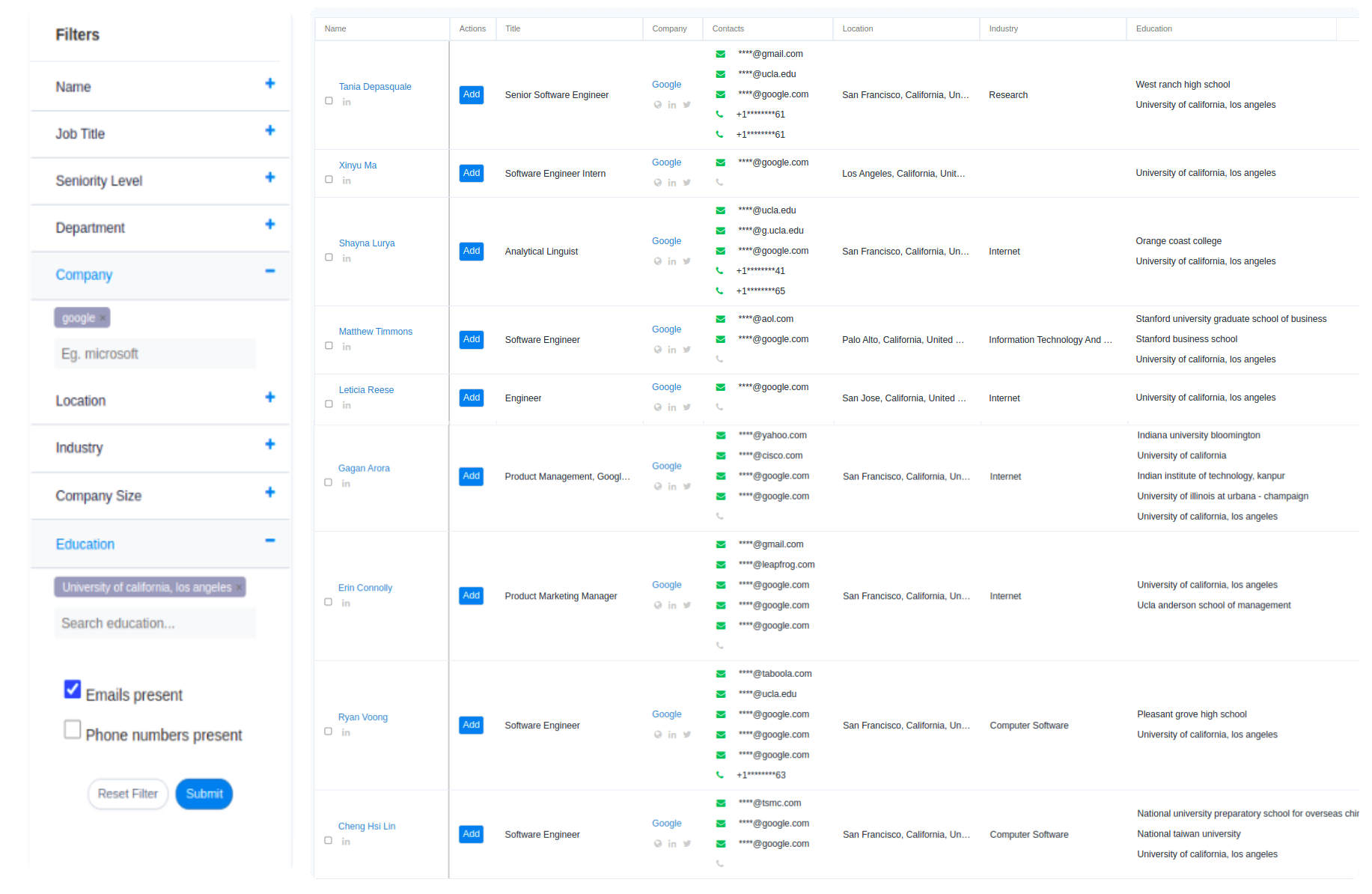There is a lot of talk about the importance of keyword research in digital marketing.
And that’s okay…keywords are important indeed.
But there is another research that is even far more important: Audience Research.
Come to think of it: if you don’t know your audience, how will you even start with the keyword research?
Even with other forms of marketing such as social media marketing, you would need to consistently engage your target audience. Even social media marketing won’t bear any fruit if you don’t engage the right audience.
So audience research should be your major goal.
To give you a clear idea about the importance of Audience research, today, I have rounded up some important reasons why you should not overlook it.
You can’t engage your audience without audience research
When it comes to marketing and social selling, nothing trumps audience engagement. LITERALLY.NOTHING!
And don’t take my word on it.
Hear it from various other digital publishers like you and me.
A majority of digital publishers believe that factors such as shares, engaged time, comments, and more matter the most when it comes to measuring audience engagement.
But who will share your posts?
And who will comment on your blog posts?
Your target audience — that’s who!
But again, how will you get this target audience? How would you know whom to target and where to seek them?
Audience research is the answer.
While other tricks like keyword integration, SEO, and more will help you drive traffic, however, if you want audience engagement, you will have to understand the importance of audience research.
Audience research leads to more sales
Your end goal is selling your product, right?
After all, everything you do, you do it for sales.
You leverage social selling to increase your sales. Purchase automated tools to give your sales a boost.
And so on and so forth!
You are so keen on making more and more sales and audience research is the way to achieve your sales goals.
For example, you can send out a survey to your audience that uses a combination of nominal and ordinal scale questions for maximum insights. When you get the results, you’ll have a better understanding of what your audience likes and dislikes and can use that information to tailor your messages
When you pitch to a targeted audience, they are more likely to purchase from you.
If they have landed on your website because of your well-implemented targeted marketing practices, this means they already feel like a part of your brand.
And this is what invokes loyalty among customers.
The importance of audience research doesn’t only lie with the fact that it helps you acquire customers.
The best part is that it helps you acquire loyal customers.
And loyal customers mean more recommendations, more sales, and more revenue generation.
Let me prove this claim.
Have a look at this eye-opening statistic:
Research reveals that loyal customers are 5x more likely to repurchase and forgive you.
They are also 7x more likely to try a new offering and 4x more likely to refer to an acquaintance.
To sum it up, loyal customers spread the word around and are unlikely to hold a mistake against you.
But why do we see this trend among loyal customers?
The answer is simple, loyal customers identify with your brand on a personal level because you did extensive research and targeted only the customers you required your help or someone whose thought-process aligns with your brand.
That’s why, if you want to build a loyal audience base, you have to first start off with audience research.
Audience research decreases your bounce rate
You’d say, what has one got to do with the other.
Well, audience research has everything to do with the bounce rate.
Let’s consider this scenario.
You recently launched your tech blog. In your excitement to drive instant traffic, you start sharing your blog link with anyone you come across on social media.
As you result, you now have a huge bounce rate. As it turned out, not many of these people were interested in reading about tech. So they did check out your website out of curiosity, but when they saw it doesn’t align with their goals, they exited it thereafter.
Now if you do proper audience research and share your blog link with those who might be genuinely interested in reading your blog, you can easily alleviate this issue. A laser targeted audience is likely to stick around long enough to browse through your whole blog and read even more articles.
The lesser bounce rate you have, the higher will be your Google ranking.
But have you ever wondered what percentage of bounce rate is a bad sign and what is acceptable?
Have a look at average bounce rate according to various industries:
Apart from this, a bounce rate between 26 to 40 percent is excellent, while 41 to 55 percent is somewhat average. 56 to 70 percent is slightly higher than average and finally, bounce rate over 70 percent is disappointing.
Identify your audience’s concern
If you are pitching your product randomly to a random audience, you are not only giving rise to your bounce rate but also wasting your time, resources, and money.
Pitching to a random person means you are pitching without any knowledge regarding their concerns.
What if they aren’t facing any problem that your product can solve? And what if they simply don’t have the budget to afford your services?
You will simply end up chasing tons of unproductive leads.
That’s why I put great emphasis on the importance of audience research.
Audience research helps you find the answer to simple questions like who is your audience? What are their primary concerns? And so forth!
Once you have an answer to the above question, you are now armed with some important facts about your prospects.
Identifying your audience’s concern is especially crucial. It helps you devise a winning sales pitch wherein you can include some great strategies to tackle their concerns.
This way you can acquire more customers than ever before.
The easiest way to find an answer to these questions is by doing audience research.
Parting Words
Your audience is the most important asset of your marketing and sales strategy.
Therefore, it’s naturally that audience research is equally important.
Everything else you do is pretty much useless unless you contact the right person using the right medium.
The right audience is easy to acquire, they are more loyal, they are great for your referral marketing, and so on.
Hope all these points give you a perfect idea about the importance of audience research.
So start off with audience research before you devise any other marketing strategy.
I’d suggest creating an ideal customer profile to implement audience research properly.
If you want to create a perfect ideal customer profile, you can read more here: 10 Tips To Create Ideal Customer Profile For B2B Startups.






Appreciation to my father who shared with me on the topic of this weblog, this webpage is really remarkable.